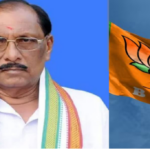Eyeing USD 2 tn exports by 2030, India embarks upon a dynamic trade policy
NEW DELHI, APRIL 5: Exhibiting a transformational departure from earlier trade policy announcements, the new trade policy announced by the government provides much-needed flexibility and dynamism in addressing long-standing needs of international trade dynamics. Since 1992, Export-Import (EXIM) Policies were announced for five years, renamed as Foreign Trade Policy (FTP) in 2004, necessitating numerous amendments from time to time to the extent that the essence of the initial policy announcement got significantly altered. The FTP has no end date, providing dynamism and flexibility to assess the international business environment and make necessary modifications consistently.
The government sets a target of achieving exports worth $2 trillion by 2030 and brings out a broad strategy to achieve the same. Given India’s total exports, goods and services included, touching over $760, backed by the futuristic policy measures in the new FTP, India may achieve these targets much earlier than expected.
The FTP presents a comprehensive and unified document, with impressive precision, delineating the government’s vision, unlike earlier policy traditions to present the policy in multiple parts detailing out incentive schemes and rebates, procedural modalities, and even input-output norms.
The new FTP envisages active engagement with states at the district level to effectively implement policy measures to promote exports. It calls for states’ active participation in export promotion, which had hitherto been indifferent to exports, not only at the state -level but even encouraged at the district level by the One-District-One-Product scheme (ODOP) and promotion of district export hubs.
The new FTP is WTO-compliant as Indian policies were criticised for proving subsidies for being non-compatible under the WTO’s Agreement on Subsidies and Countervailing Measures.
Creating export competitiveness of products seems to be the key focus of the new FTP as it departs from the era of incentives to remission of duties and taxation and operational ease of the entire trade cycle.
Research often indicates that providing financial incentives with an assortment of complex procedures hardly helps the sustainability of exports, especially in the long term. But to make it competitive in the international marketplace, the governments must have the courage to take tough decisions like doing away with subsidies. There is no secret that a substantial part of financial subsidies had considerable seepage before it reached the target beneficiaries. Moreover, even importers hardly hesitate to get their share in such subsidies by way of forcing price cuts in many a case.
Key policy measures to facilitate exporters include the digitisation of applications for several export promotion schemes such as advanced authorisation, exports promotion capital goods (EPCG) scheme, duty-free import authorisation scheme, and exports imports licenses have been made completely paperless and online. Moreover, rule-based automatic approval systems using business analytical tools are being implemented by DGFT with a processing time of just a day, which would considerably speed up the export operations and reduce the hassles.
To boost exports of manufactured goods, a host of targeted interventions in the policy, such as the inclusion of Prime Minister Mega Integrated Textile Region and Apparel Parks (PM Mitra) scheme for benefits under Common Service Provider (CSP) under the EPCH scheme. Extending a special advance authorisation scheme for the apparel and clothing sector would greatly facilitate the speedy execution of export orders. Special measures have been taken to support the dairy industry to upgrade the technology by way of exemption from maintaining average exports obligation, which would go a long way to transform India, the world’s largest milk producer with a 24% share globally in milk production but less than 0.5% share in world dairy exports, into world’s leading dairy exporter.
The policy introduces special provisions to boost merchant trading activities from India, especially in the case of third-country trade where the goods do not touch India. Special emphasis is on promoting e-commerce exports with the intent to set up e-commerce export hubs, backed by a separate policy framework.
Internationalisation of trade in rupee that allows trade settlement in Indian rupee with enabling provisions for the grant of exports incentives under the FTP and fulfilment of exports obligations for exports realisation in rupee as per the RBI is highly commendable.
The flexibility of the FTP may now be leveraged to incorporate an increased emphasis on international market promotions, dynamic exploration of potential markets and brand building. Even export promotion organisations, such as EPCs, commodity boards and trade associations, may be supported in their international market promotion efforts backed by increased provisions in schemes like market access initiative.
However, it would make strategic sense if officers of the Indian Trade Service, well-trained in the intricacies of global trade with hands-on experience, are posted in overseas missions, similar to large economies, with the sole task of promotion of trade and investments.
-TNIE






